

- EDITIONS:
 Spanish News Today
Spanish News Today
 Murcia Today
Murcia Today
 Alicante Today
Alicante Today
article_detail
Spanish News Today Editors Roundup Weekly Bulletin Sept 6
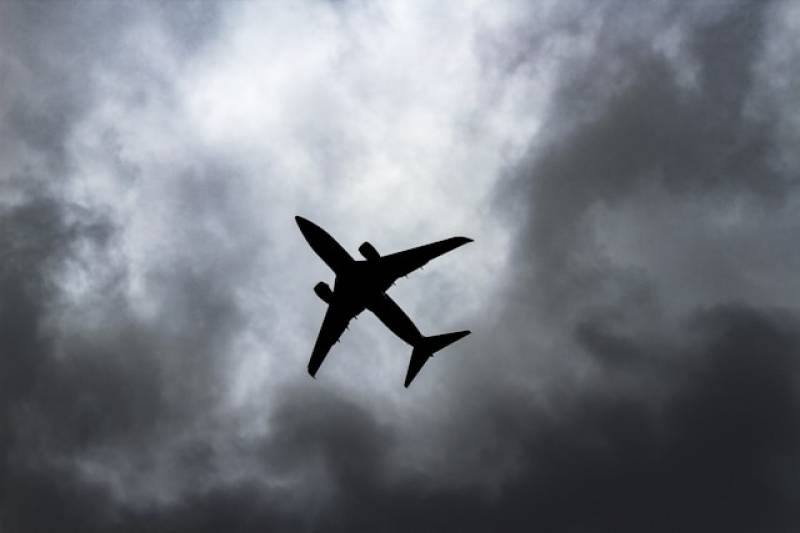
TOP STORIES: "Bad weather causes flight disruption in Spain" & "New high-speed rail service expands in Murcia"
September, and we’re back from our little two-week break with your next edition of the Editor’s Roundup Weekly Bulletin. I have to say, it was an extremely relaxing break for me, and I hope you’ve had a good summer, too.
It’s not quite over yet, of course, as there are still two weeks left until the official start of autumn, but already Spanish schools are going to start again next week and many people are back at work now. The shutdown that effectively takes place in Spain every July and August is now over, ‘Operación Verano’ has finished and it’s back to real life.
It’s also a time when Spanish institutions large and small start spending money and making decisions again, which is why in this week’s bulletin we’ve got a nice mix of political, transport and commercial news for you from the last week. Let’s dive in!
Good governance
First, it was the turn of British Ambassador to Spain Hugh Elliot (who you may remember from the UK driving licence affair) to step down from his post, as has been planned for a long time now, to make way for his replacement Alex Ellis. This is part of the usual ambassadorial reshuffle, and we wish both Mr Elliot and Mr Ellis all the best for their new ventures.
For the Spanish, they’ve been more focused on the judiciary which up until now has faced a five-year paralysis due to political deadlock, sparked by the appointment of party-aligned figures to the General Council of the Judiciary (CGPJ), which oversees all courts, including the Supreme Court.
This situation led to an institutional crisis, raising concerns about the country’s democratic integrity. After lengthy negotiations, the ruling PSOE and opposition PP parties reached a crucial agreement to depoliticise the judiciary, finally swallowing their pride and allowing legal professionals, rather than political appointees, to lead.
This agreement marked a turning point, culminating in the historic appointment of Isabel Perelló as the first woman to preside over both the Supreme Court and the CGPJ.
 Perelló, a respected Catalan magistrate known for her progressive values, was not the government’s first choice. Still, her widespread support across political lines secured her the role, seen as a major step towards restoring judicial independence.
Perelló, a respected Catalan magistrate known for her progressive values, was not the government’s first choice. Still, her widespread support across political lines secured her the role, seen as a major step towards restoring judicial independence.Perelló's appointment is particularly significant as Spain’s judiciary has been accused of “lawfare”, or the misuse of legal systems for political purposes, in high-profile cases linked to figures close to the government.
As she begins her five-year term, there is hope that her leadership will usher in an era of judicial independence and fairness, helping Spain’s judiciary recover from this prolonged crisis.
Around the resorts
Now, some developments on the major urbanisations and resorts where foreigners live in Murcia and which we cover closely here at Spain Today Online.
On Camposol, there has been some limited degree of progress in addressing the garden waste issue that has been accumulating in five areas around the urbanisation.
To her credit, Mazarrón Councillor for Camposol, Carmen Navarro, has taken action to remove the waste pile located on land adjacent to the road leading to the Camposol Golf Club.
This pile, situated on private land, was deemed the most visible and problematic of the waste piles compared to other areas, and so it’s been prioritised for removal. The removal will cost a not insignificant 30,000 euros and is just a temporary solution until a larger-scale contract can be approved to deal with all the waste piles on the urbanisation.
A long-term plan is also being discussed, which includes the establishment of fenced-off collection points, possibly manned, to deter fly-tipping. This initiative, though addressing a seemingly mundane issue, highlights the ongoing efforts to improve living conditions in the resort and the surrounding urbanisation.
Meanwhile, another golf resort, Condado de Alhama, is grappling with its own challenges. The lakes surrounding the La Isla area have dried up due to a severe drought and other water (mis)management issues, leading to growing complaints from property owners over the unsightly and bad-smelling plot.
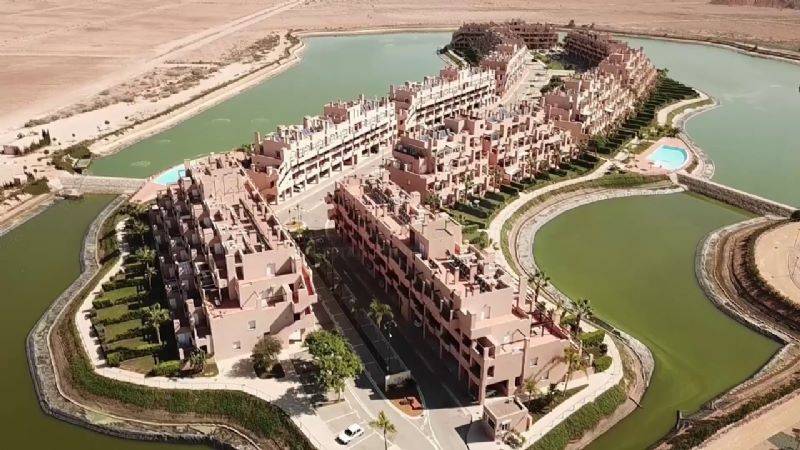
On many large-scale residential developments like Condado, natural features like lakes are integral to the resort’s appeal, but it’s true that they also present significant management challenges and hopes for a quick solution to the Condado lake problem may have been premature.
The Urban Conservation Entity for the resort has come under fire for its lack of action, with Alhama de Murcia’s Town Council stepping in to address the problem. Despite attempts to collaborate, the president of the Urban Conservation Entity has missed crucial meetings, prompting the council to take matters into its own hands.
Inspections and reports have been carried out by council technicians, and the situation is now deemed urgent. The council is pressing for immediate action to restore the lakes and ensure proper water resource management.
In addition to tackling the lake problem, Alhama de Murcia Town Council is making strides in infrastructure improvements that will benefit residents and visitors alike. Among the key initiatives is the expansion of bus services, which will improve connectivity between Condado de Alhama, the Industrial Estate and the town centre.
This is a welcome change for residents who have long called for better public transport options. And the Town Hall aren’t stopping there, as it seems they are committed to investing heavily in infrastructure between now and the end of the year.
For instance, the town’s swimming pools are undergoing a 72,000-euro renovation, transforming them into family-friendly spaces with new recreational features. The town’s healthcare services are also set for a significant upgrade, with a new health centre planned, providing additional consulting rooms and medical staff.
Meanwhile, at Las Terrazas de la Torre Golf Resort the rebranding of a popular venue has injected some excitement into the local social scene. Spanglish, a much-loved spot at the resort, has recently been rebranded as ‘The 19th Hole’.
Despite initial challenges faced by its original owners, Daniel and Manu, the venue quickly gained popularity among both residents and visitors. Now, with a fresh name and new management, The 19th Hole is gearing up to offer an even better experience.
It will soon serve breakfast, lunch and pizza, while already providing a lively atmosphere with drinks, live entertainment and happy hours. This rebranding marks a new chapter for the venue, reflecting the dynamism and evolving nature of life at the resort.
Rain and diverted flights
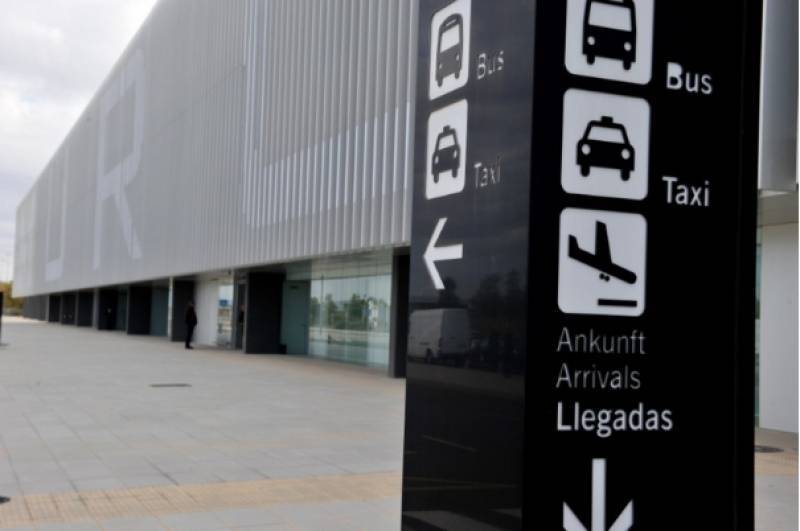 Severe storms across southeastern Spain caused disruptions this week, particularly impacting air travel. On Tuesday, heavy rain and thunderstorms forced the diversion of three planes destined for Alicante-Elche Miguel Hernández airport.
Severe storms across southeastern Spain caused disruptions this week, particularly impacting air travel. On Tuesday, heavy rain and thunderstorms forced the diversion of three planes destined for Alicante-Elche Miguel Hernández airport.These diversions occurred around midday, with two flights from the UK – one from London Stansted and another from Manchester – being rerouted to Corvera Airport in Murcia, while a third flight from London Gatwick was sent to Almería.
This situation was short-lived, as normal operations resumed at Alicante airport later that day. However, these diversions were a clear sign of the broader weather issues affecting the region, with an orange alert issued for parts of Valencia, Castellón, and Alicante due to the risk of intense rain and storms.
As the storms moved through the area, the Region of Murcia experienced its own weather-related issues. On Wednesday, the State Meteorological Agency (Aemet) activated a yellow storm alert for several areas in Murcia, warning of accumulated rainfall reaching 20 litres per square metre in just one hour.
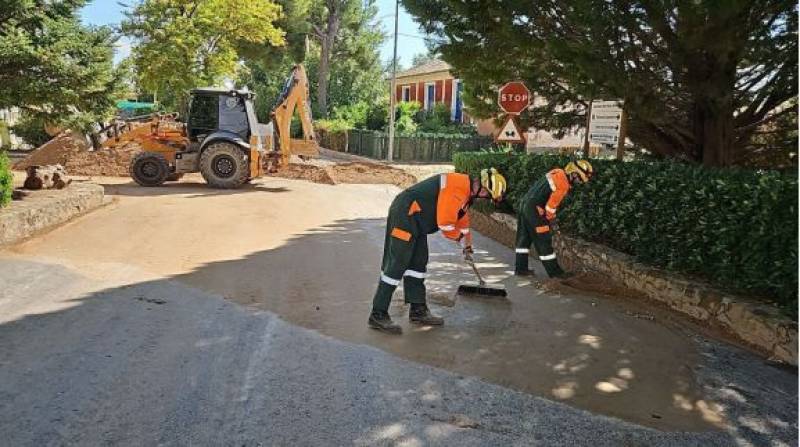 The heavy rains led to emergency situations, particularly in the northern town of Jumilla, where flooding became a major concern. As rainwater inundated streets and rural roads, the municipality requested assistance for clean-up efforts, and up to 25 people from three forestry brigades were sent to help manage the situation.
The heavy rains led to emergency situations, particularly in the northern town of Jumilla, where flooding became a major concern. As rainwater inundated streets and rural roads, the municipality requested assistance for clean-up efforts, and up to 25 people from three forestry brigades were sent to help manage the situation.Jumilla was the most significantly affected area, prompting the activation of Emergency Phase 0 of the Inunmur flood plan. In just a few hours, the Emergency Coordination Centre had to handle 70 incidents related to the storm, including floods, drainage issues, road blockages, and even some rescue operations.
Fortunately, no injuries were reported, but the sheer volume of rain, particularly in Jumilla, overwhelmed the town’s infrastructure. The waterspout that hit the area intensified the flooding, and local authorities had to work swiftly to manage the aftermath, deploying resources to clear the streets and drainage systems.
While Jumilla bore the brunt of the storm, other parts of the region were not spared. In San Javier, particularly the coastal area of Santiago de la Ribera, heavy downpours caused significant flooding. Nearly 45 mm of rain fell within one hour, flooding streets and creating disruptions for residents and businesses in the area.
These sudden and intense storms continue to be a predictably unpredictable source of concern, as we see flash flooding every single time it rains. Okay, granted it doesn’t rain very much in this part of Spain, but you would think the authorities would have got the message by now that when it does then the existing infrastructure just isn’t prepared to deal with it. Time for a major overhaul?
Murcia
Going back to Corvera Airport for a moment, which as we know has had a bumpy ride in establishing itself as a key player in the region’s tourism sector since it opened in 2019. Compared to the previous airport at San Javier and the nearby Alicante-Elche airport, Corvera has struggled to gain traction, but recent data for July 2024 offers a glimmer of hope, particularly with routes connecting to the UK and Ireland.
Flights to the UK were standout performers, with routes like those to Dublin and Glasgow seeing occupancy rates above 95%. Even routes to Manchester and London airports contributed significantly to the airport’s traffic, with London flights alone accounting for 36% of all passengers in July.
Despite these successes, routes to destinations like Belgium and some domestic flights, such as Madrid and Menorca, have underperformed, indicating that Corvera still faces challenges in fully realising its potential.
 This focus on improving connectivity in the Murcia region ties in well with another recent development – the launch of Ouigo’s high-speed rail service between Murcia and Madrid this week.
This focus on improving connectivity in the Murcia region ties in well with another recent development – the launch of Ouigo’s high-speed rail service between Murcia and Madrid this week.The private French rail company has introduced two daily trains going in each direction that promise to shave travel time between the two cities to just under three hours, providing a faster and cheaper alternative to Renfe’s existing services.
Ouigo’s arrival brings more competition to the market, which should ultimately benefit travellers by driving down prices and improving services. This new option for travelling between Murcia and the Spanish capital is part of a broader push to improve the region’s infrastructure, making it more accessible to both residents and tourists alike.
Infrastructure improvements are not limited to air and rail travel. The expansion of the Lidl supermarket chain in the Region is another sign of growth in Murcia, a previously overlooked and underappreciated corner of Spain, at least in the estimation of many Spaniards.
 Lorca recently welcomed its second Lidl store, following a successful first opening in 2019. This new store is part of a broader urban renewal project in the La Viña district, where it is expected to contribute to economic growth and job creation.
Lorca recently welcomed its second Lidl store, following a successful first opening in 2019. This new store is part of a broader urban renewal project in the La Viña district, where it is expected to contribute to economic growth and job creation.Lidl’s ongoing expansion, which comes on the back of a new store recently opened in Yecla and includes several other openings across Spain, such as one in Murcia capital very soon, reflects its commitment to enhancing shopping while also helping to support local economies – with Lidl responsible for 2% of all employment in the Region, its influence on the local economy is substantial.
At the same time as these new beginnings is the start of the annual Feria de Murcia this week, a vibrant festival that draws locals and visitors alike to Murcia capital. Held from September 5 to 17, the Feria includes a wide array of activities, from bullfights (I know) and concerts to the Moors and Christians celebrations and the traditional casetas selling food and drinks.
Central to the Feria, as it is in the fiestas of any town or municipality across Spain, is the veneration of the city’s patron, the Virgen de la Fuensanta, affectionately known as ‘La Morenica’. Her journey from her sanctuary in the mountains to the cathedral in Murcia marks the beginning of the festivities, and her return on September 17 in a grand Romería (pilgrimage) draws thousands of participants.
Then, of course, there’s the obligatory fairground – the literal translation of ‘Feria’ – with over 150 attractions and the famous giant wheel offering fun for all ages.
See our EVENTS DIARY for more events and activities coming up soon in the Region of Murcia:
Spain
There was yet another tragic incident in Mallorca recently when a 64-year-old British man fell to his death from the sixth floor of a car park near the Saratoga Hotel. The horrifying event occurred last Sunday afternoon, witnessed by unsuspecting tourists staying at the hotel.
Although emergency services arrived quickly, they could not save the man. His body was transferred to a hospital for a post-mortem, but there are no suspicions surrounding the circumstances of his death.
This tragic accident adds to a series of recent falls involving British tourists in Spain. Just a few days earlier, a 15-year-old British girl had to be rushed to hospital after an incident in Mallorca, while a Scottish teenager tragically fell to her death in Ibiza and another British tourist lost his life after a fall in Palmanova.
It’s absolute madness how this happens every year. Thank goodness we’re coming to the end of the tourist season now and these incidents should begin to become fewer and further between.
Of course, on the one hand it’s just a numbers game – in summer there are more British tourists on the islands, so more chance of British tourists becoming injured or dying. But the sheer number of balcony falls and fatal drops is surely out of proportion, and if there is something broken in tourists’ behaviour when they’re on holiday on the Spanish islands, then there needs to be a serious campaign to fix it.
In other news from Spain, a significant discovery was made in the world of paleontology. Researchers have identified a new species of titanosaur, named Qunkasaura pintiquiniestra, from skeletal remains found at the Lo Hueco excavation site in Cuenca.
This massive dinosaur, which lived around 70 million years ago during the late Cretaceous period, was about 20 metres long, with much of its length attributed to its enormous neck (think that scene in Jurassic Park where the dinosaur rears up to eat the leaves off the top of the tree).

Weighing over 15 tonnes, this newly discovered species sheds light on the diversity of dinosaur life on the Iberian Peninsula during that era. The dinosaur’s name is a tribute to the region it was found in, and the discovery offers a fascinating blend of scientific and cultural significance.
The Lo Hueco site has been a treasure trove for paleontologists since its discovery in 2007, when it was uncovered during construction work on a high-speed railway. Over the years, the site has yielded numerous significant finds, including fossils that have advanced our understanding of ancient ecosystems, crocodiles, turtles and other titanosaurs.
The discovery of Qunkasaura pintiquiniestra is particularly intriguing due to its unique skeletal features, such as bony protrusions on its neck vertebrae and a hooked structure near the spine, distinguishing it from other known species. Researchers have classified it within a specific group of titanosaurs believed to have migrated across ancient supercontinents, and are expecting to unearth more specimens of this newly classified species. This discovery not only enhances our knowledge of dinosaur evolution but also provides valuable insights into the changes that took place in ecosystems leading up to the extinction event 66 million years ago.
Alicante
Over the last few days, a large number of migrants have been rescued off the Mediterranean coast while attempting dangerous journeys to Spain in small, overcrowded boats. These boats, called ‘pateras’, often carry people fleeing poverty, war and oppression and highlight the desperation that drives so many to risk their lives for a chance at a better future.
The Mediterranean, long a treacherous passage for those seeking refuge, remains a grim reminder of the global challenges that push people to make such perilous journeys. Recently, in Alicante, three boats carrying 40 people, including children and a pregnant woman, were rescued.
 The Red Cross provided immediate care, as they always strive to do, but officials noted that the health conditions of those arriving have worsened, with more pregnant women, infants and individuals suffering from serious ailments such as burns and heart conditions. The trauma and invisible scars these migrants bear add to the urgency of addressing this humanitarian crisis.
The Red Cross provided immediate care, as they always strive to do, but officials noted that the health conditions of those arriving have worsened, with more pregnant women, infants and individuals suffering from serious ailments such as burns and heart conditions. The trauma and invisible scars these migrants bear add to the urgency of addressing this humanitarian crisis.Despite efforts to deter migration through border security and containment policies, people continue to arrive, driven by the harsh realities of life in their home countries. The response from Europe has often focused on border security, but this does not address the root causes that force people to flee, namely conflict, exploitation and climate change.
While the immediate need is for humane treatment of those arriving, long-term solutions require safe and legal pathways for migration, development support in the migrants’ home countries, and a response to the climate crisis, which is displacing millions worldwide. The boats will keep coming, and the challenge lies in responding to this crisis with humanity and dignity.
 Ok, heavy stuff out the way. Now for something lighter, as Torrevieja is preparing for a season of vibrant live entertainment from now until the end of the year. The city will host over 30 performances, ranging from tribute acts and comedy shows to theatre and children’s entertainment.
Ok, heavy stuff out the way. Now for something lighter, as Torrevieja is preparing for a season of vibrant live entertainment from now until the end of the year. The city will host over 30 performances, ranging from tribute acts and comedy shows to theatre and children’s entertainment.This cultural programme for September kicks off with the Torrevieja Audiovisual Film Festival, the family show Sleeping Beauty and the 36th International Choral Meeting. As the season progresses, highlights include concerts, operas such as Puccini’s Tosca, and family-friendly musicals. October will feature a tribute to ABBA, which promises to be spectacular, and a concert by Pastora Soler celebrating her 30-year career, while November and December will see flamenco performances, Christmas-themed shows and the highly anticipated ballet performance of The Nutcracker.
Be sure to follow the Costa Blanca What’s On and Where to Go Facebook group to see more things to do around Alicante province!
Andalucía
 Drivers get ready as this September Andalucía’s ITV centres are set to face major disruptions due to workers’ strikes.
Drivers get ready as this September Andalucía’s ITV centres are set to face major disruptions due to workers’ strikes.The two unions UGT and CCOO have organised eight days of strike action across the entire autonomous community, demanding updates to their collective bargaining agreement.
Basically, the issue is that workers are frustrated, feeling that the current conditions don’t reflect the reality of their situation. Despite the unions proposing some solutions, like moving to a Monday-to-Friday work week, the Regional Ministry of Industry has resisted, claiming the changes would be too costly.
With no resolution in sight, the strikes will see full closures of ITV centres near the end of this month, causing inconvenience for drivers needing vehicle inspections.
Focusing on just one corner of the autonomous community, over in Almería it seems the summer tourist season has brought a bit of a mixed bag in terms of visitor numbers.
According to the latest statistics to be released, British and German tourists – who usually make up a large chunk of visitors – have slightly dipped in numbers. There was a 3.7% drop in British tourists in June and July, although they still led with 45,800 visitors, while Germans saw a very modest 4.4% rise, much lower than expected.
But while those numbers were a bit down, there’s been a big increase in tourists from France, Belgium and the Netherlands. French visitors to Almería went up by 12.5%, Belgian tourists by 8.5%, and Dutch tourists surged a whopping 24%. French tourists, in particular, have been consistent throughout the year, with Dutch visitors also showing strong loyalty to the province.
This is partly thanks to the frequent direct Transavia flights to Almería Airport from Rotterdam and Paris, and given the recent rise in passenger numbers from these countries, we could expect more such destinations for the next summer season.
Until then, it’s almost time for Spain’s airports to drastically reduce the number of flight destinations as the weather begins to get cooler.
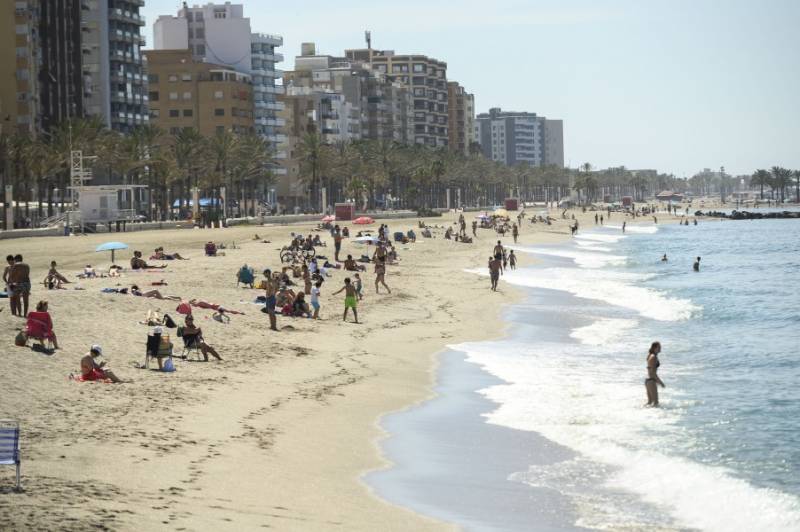
You may have missed…
- One in four homes sold in Murcia are to foreign buyers.
According to the latest data from the Spanish Association of Registrars, foreign nationals accounted for 23.58% of all home sales in Murcia during the second quarter of 2024, placing it as the fourth most popular region for foreign home purchases in Spain. - New Camposol hospital becomes main sponsor for local football team.
Mederi Salud - Hospital Guadalentín, the private hospital situated on the Camposol urbanisation which opened its 24-hour emergency department in August, have signed a collaboration agreement with Club Deportivo Bala Azul to become the main sponsor and medical services provider for the football team. - British woman dies in Mallorca flash floods.
A British woman tragically lost her life following flash floods in Mallorca, one of two hikers who were caught in the Torrente de Pareis canyon during severe weather conditions. - Caravaca working to create a ‘green ring’ cycle and pedestrian path.
Caravaca de la Cruz is hard at work creating a ‘green ring’ around the town, making it possible to complete a 5km circuit by bike or on foot. - A successful summer season for Lorca beaches with more visitors and fewer incidents.
This summer has been very positive for the beaches along the Lorca coast, with a significant increase in visitors and a notable decrease in incidents. The good weather, the optimal sea conditions and the opening of the Parazuelos campsite have been among the key factors for this development.
And that’s our Bulletin for this week, the first of September and the first back after the summer break. Hope you liked it (you’ve read up to this point, anyway!)
See you again next week!
Contact Murcia Today: Editorial 000 000 000 /
Office 000 000 000





















